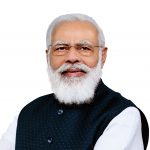Politics
India Politics
This page explores India’s political structure incorporating real-time RSS feed news and videos. By harnessing the power of RSS feeds, visitors can stay informed about the latest developments in India’s politics as they happen. The dynamic nature of these feeds ensures that users receive up-to-the-minute updates on political events, policy changes, and significant milestones, enabling them to stay abreast of the ever-evolving political scene.

Narendra Modiellus
14th Prime Minister of India
Incumbent
Assumed office
26 May 2014
Image credit
India’s political structure is based on a federal parliamentary democratic system. It is a sovereign socialist secular democratic republic, where the President of India serves as the ceremonial head of state, and the Prime Minister is the head of government. The President is elected by an electoral college comprising of elected members of both houses of Parliament and state legislatures. The Prime Minister is the leader of the political party or coalition with the majority of seats in the Lok Sabha, the lower house of Parliament. The President appoints the Prime Minister, who then forms the Council of Ministers to assist in the governance of the country.
The Parliament of India consists of two houses: the Rajya Sabha (Council of States) and the Lok Sabha (House of the People). The Rajya Sabha is the upper house, with its members (Rajya Sabha MPs) elected by the elected members of the State Legislative Assemblies. The Lok Sabha is the lower house, with its members (Lok Sabha MPs) directly elected by the people of India through general elections. The Parliament is responsible for making laws, overseeing the executive branch, and representing the interests of the people. It plays a crucial role in shaping and determining national policies, passing budgets, and ensuring accountability.
India’s political structure also includes an independent judiciary. The Supreme Court of India is the highest judicial authority in the country and safeguards the Constitution of India. It ensures the protection of fundamental rights and acts as the final interpreter of the law. The judiciary plays a vital role in upholding the rule of law, resolving disputes, and maintaining the balance of power among the three branches of government. The political structure of India is marked by a vibrant democracy with a multi-party system, providing space for diverse political ideologies and encouraging citizen participation through elections and various democratic institutions.
Unless other sources are listed, original content is provided by ChatGPT. ChatGPT may produce inaccurate information about people, places, or facts. #India #IndiaPolitics #IndiaNews #IndiaNewsToday #IndiaRSSFeed #BlahFace




